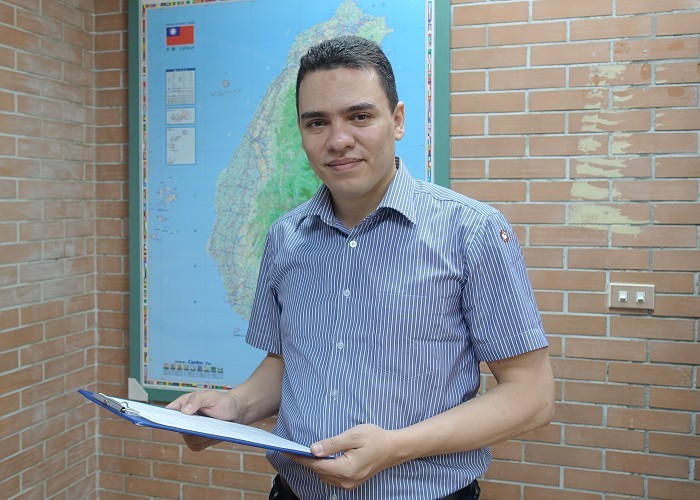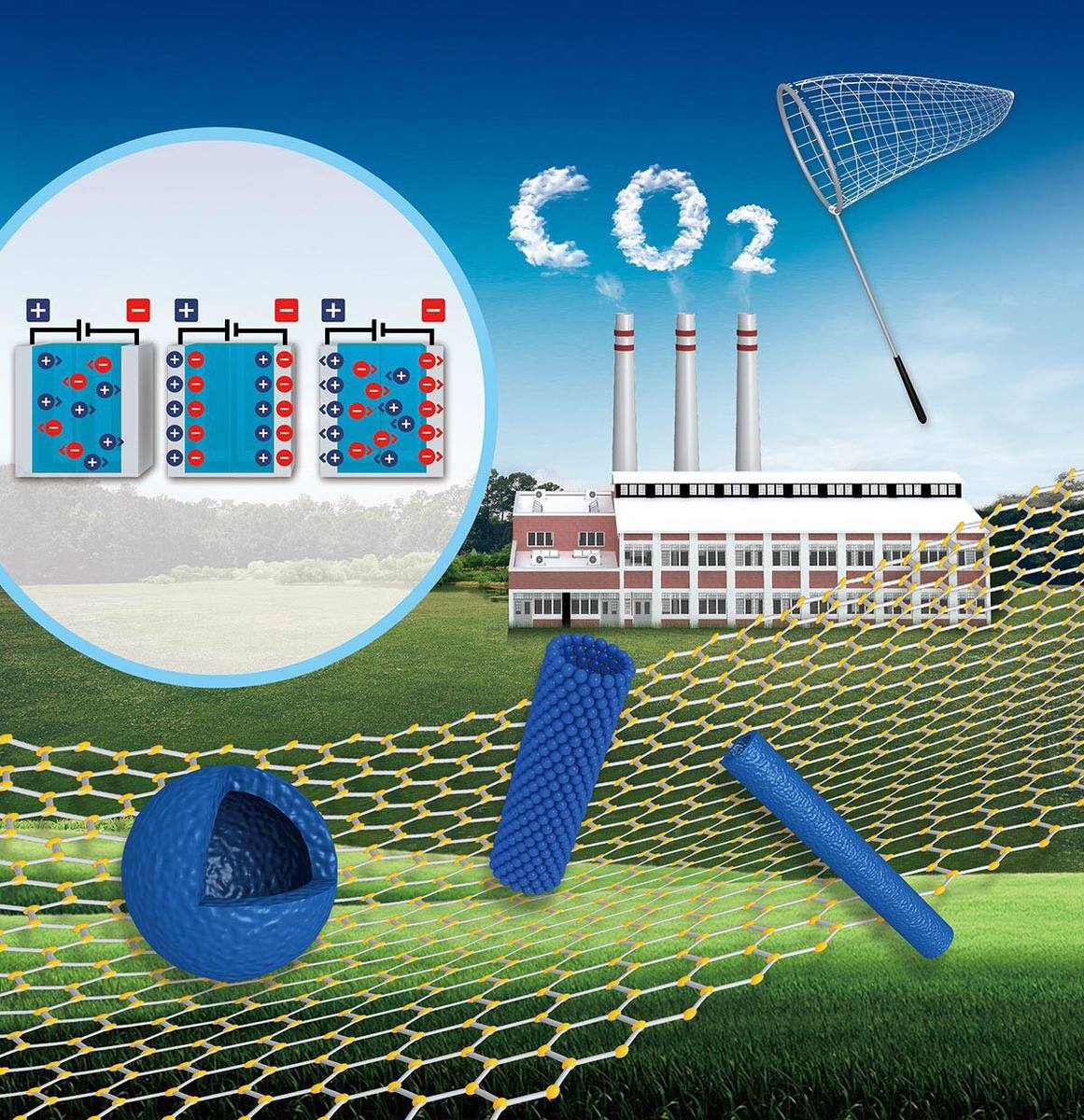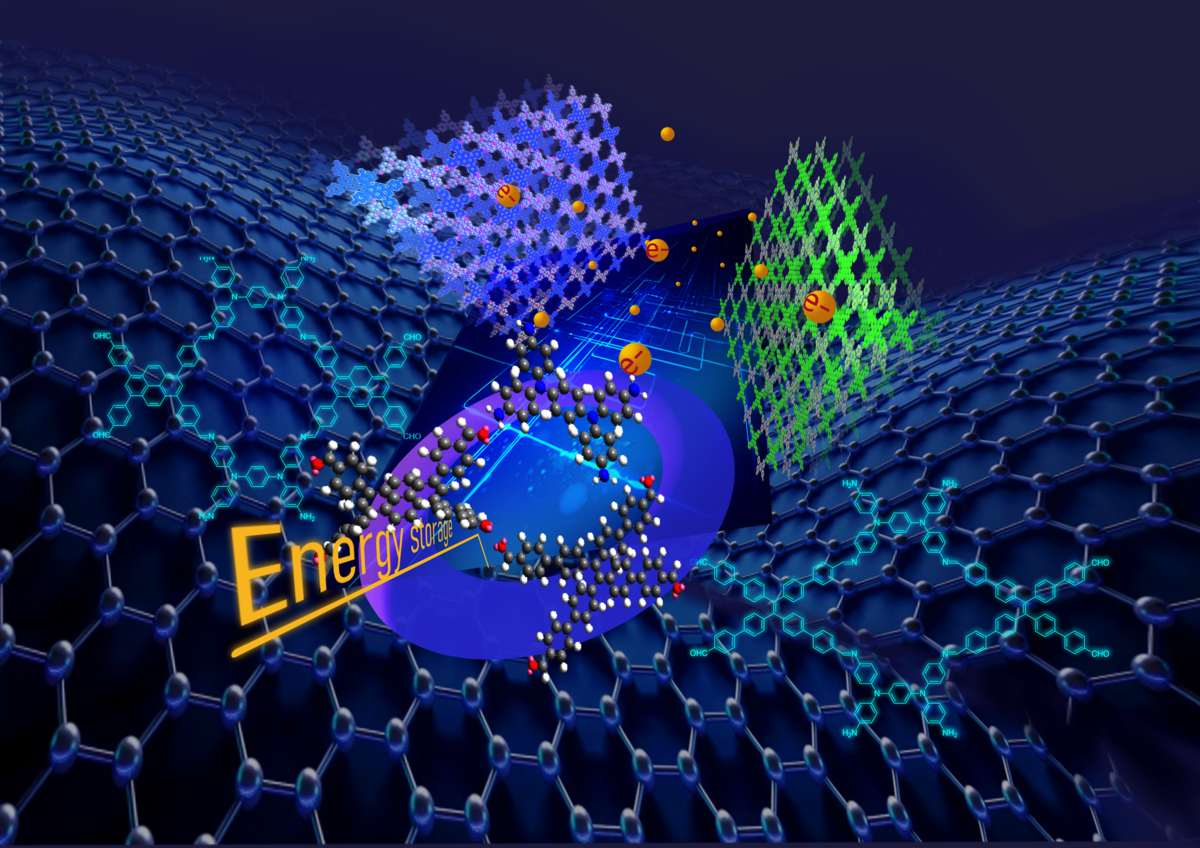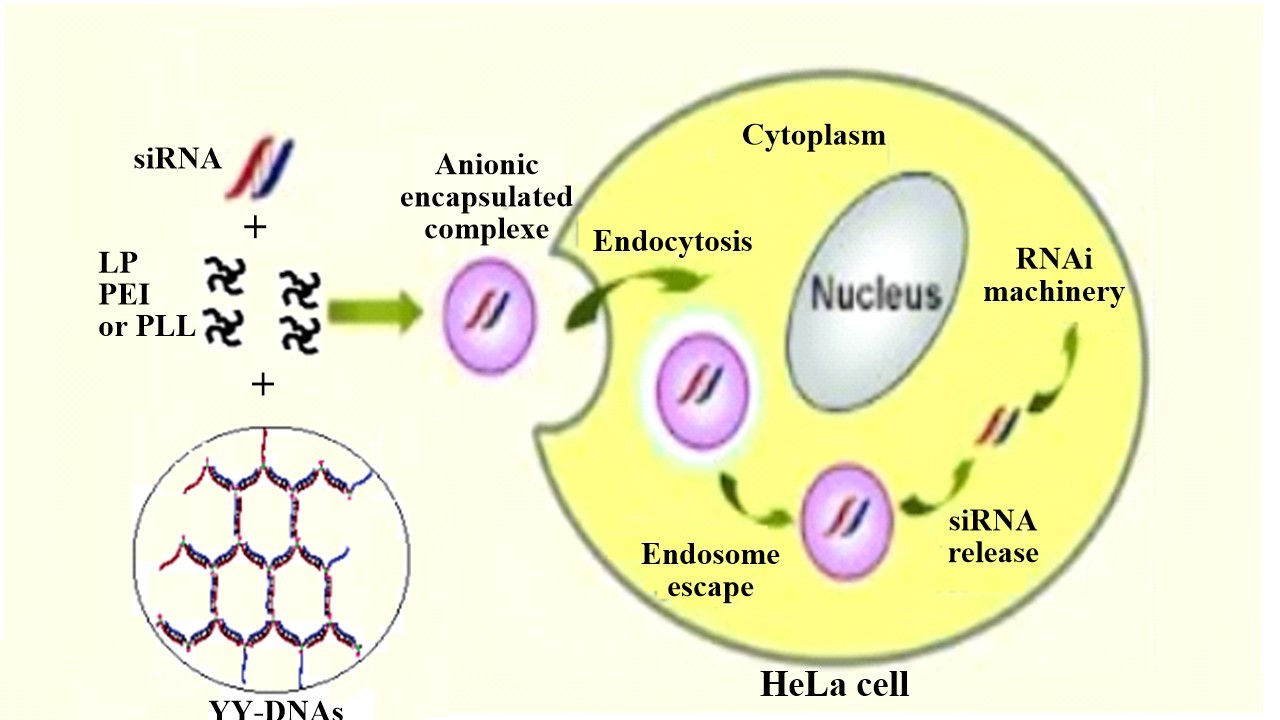Laboratory of Assistant Professor Ahmed El-Mahdy is the first lab in Taiwan to successfully prepare covalent organic frameworks and apply them to develop green technologies




Assistant Professor Ahmed El-Mahdy of the Department of Materials and Optoelectronic Science, in cooperation with Professor Shiao-Wei Kuo, led the first laboratory in Taiwan to successfully prepare covalent organic frameworks (COFs) and study how to apply these materials to develop green technologies. COFs can be used in technologies for a cleaner environment: energy storage, carbon dioxide absorption, solar cells, energy production from hydrogen extracted from water, and in many other fields, such as optoelectronics and drug delivery. “We discovered that COFs are a much more efficient material for energy production in solar cells”, admitted Assistant Professor El-Mahdy. COFs can be used in factories to reduce carbon dioxide emissions. “A reactor or a cylinder can trap carbon dioxide and COFs can absorb it at a low temperature and high pressure. When we increase the temperature and release the pressure, we can release carbon dioxide and reuse it”, he said. Covalent organic frameworks, first discovered by Omar M. Yaghi in 2005, have not been applied yet in Taiwan. The multiple use of COFs and several research papers in the topic published by the laboratory have already drawn the attention of other laboratories in Taiwan and new collaborators.
Environmentally-friendly technologies are not the only research interest of Assistant Professor El-Mahdy. For many years he has dedicated himself to the research of medicinal technologies. Right after he graduated from a master program in Chemistry at Assiut University in his native Egypt, he wanted to “go abroad and learn more advanced subjects or research fields, especially related to diseases, like cancer”. During his doctoral studies at the University of Nagasaki, Japan, he researched topics related to gene detection, as some cancers are related to changes in DNA. He also gained experience working on polymers for drug delivery and gene delivery.
Now, at NSYSU, Assistant Professor El-Mahdy wants to continue the research on telomeres he started in Japan. “Some healthy patients have this segment of DNA, but if the concentration of telomeres is too high, they might have abnormal cells, possibly cancer cells. I want to buy equipment and continue the research on gene detection here with the students”. He is also working on cancer detection by DNA barcoding. “We take a sample of patient's oral mucosa and study the DNA set. If we find it to be abnormal, the patient has a high possibility of cancer and will need further testing”.
As regards drug delivery, Assistant Professor El-Mahdy is currently searching for new non-polymer materials to deliver drugs to treat cells and make them resistant to diseases. “They have to be non-toxic and safe, such as proteins, which we use to deliver drugs to cure some protein-related sicknesses, like cold, fever, or infections”. Drug therapy usually applies toxic polymers for encapsulation and this is why Assistant Professor El-Mahdy is working to develop natural materials.
Environmentally-friendly technologies are not the only research interest of Assistant Professor El-Mahdy. For many years he has dedicated himself to the research of medicinal technologies. Right after he graduated from a master program in Chemistry at Assiut University in his native Egypt, he wanted to “go abroad and learn more advanced subjects or research fields, especially related to diseases, like cancer”. During his doctoral studies at the University of Nagasaki, Japan, he researched topics related to gene detection, as some cancers are related to changes in DNA. He also gained experience working on polymers for drug delivery and gene delivery.
Now, at NSYSU, Assistant Professor El-Mahdy wants to continue the research on telomeres he started in Japan. “Some healthy patients have this segment of DNA, but if the concentration of telomeres is too high, they might have abnormal cells, possibly cancer cells. I want to buy equipment and continue the research on gene detection here with the students”. He is also working on cancer detection by DNA barcoding. “We take a sample of patient's oral mucosa and study the DNA set. If we find it to be abnormal, the patient has a high possibility of cancer and will need further testing”.
As regards drug delivery, Assistant Professor El-Mahdy is currently searching for new non-polymer materials to deliver drugs to treat cells and make them resistant to diseases. “They have to be non-toxic and safe, such as proteins, which we use to deliver drugs to cure some protein-related sicknesses, like cold, fever, or infections”. Drug therapy usually applies toxic polymers for encapsulation and this is why Assistant Professor El-Mahdy is working to develop natural materials.
Click Num:
Share
